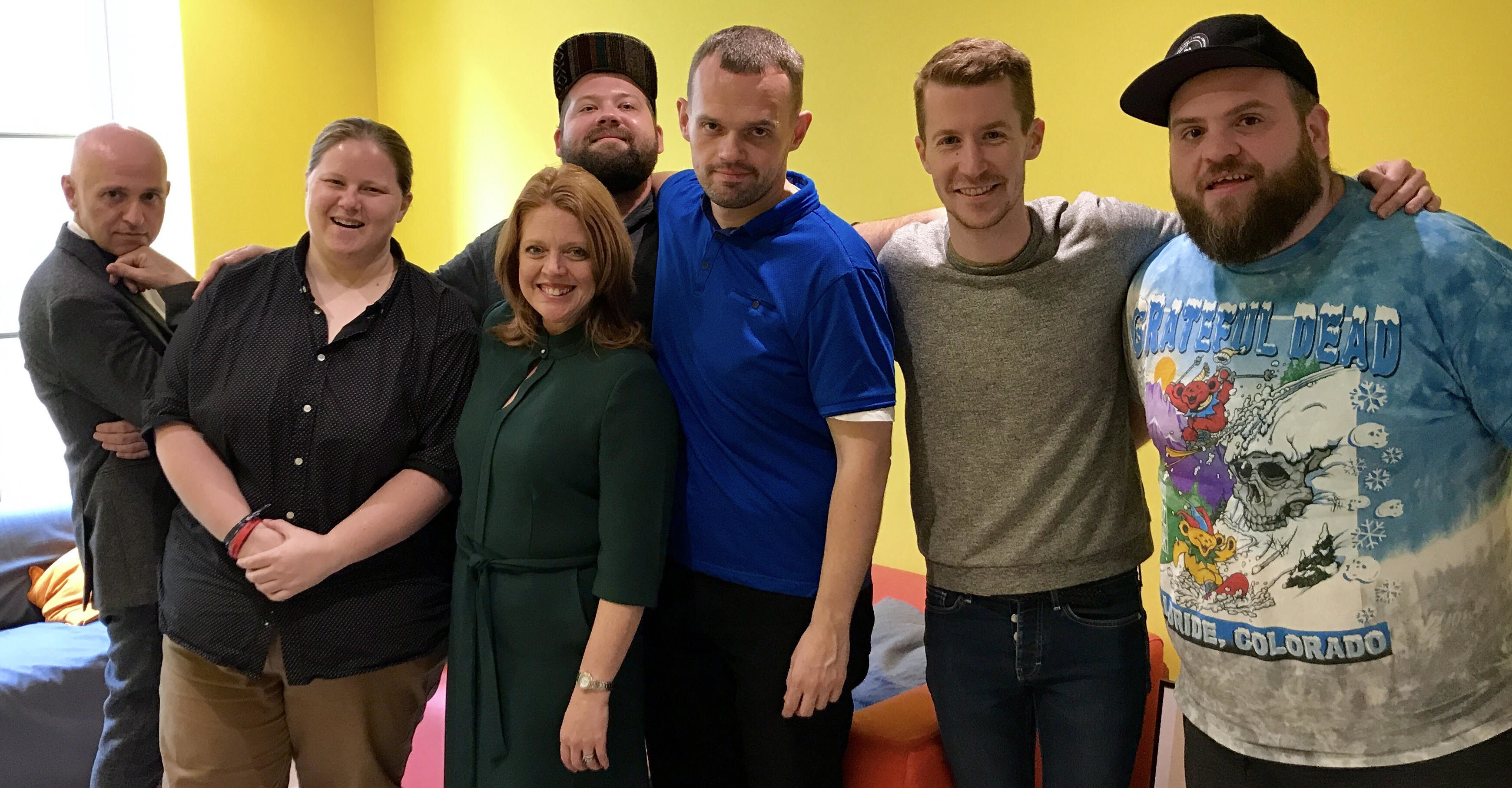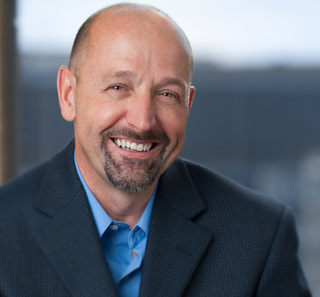President's Blog
Host Homes, E-Mentoring: How the UK Is Helping Homeless LGBTQ Youth Rebuild Their Lives
Huffington Post blog post by Jean Michel Giraud, President & CEO Friendship Place
Read this post on huffingtonpost.com

Tyler Harmon of Friendship Place’s Veterans First Program was selected as one of only five homeless advocates in the entire US for an exchange program with the UK. The Transatlantic Practice Exchange Program is sponsored by the Oak Foundation and organized by the National Alliance to End Homelessness and Homeless Link in the UK.
Tyler, why did you apply for the Transatlantic Practice Exchange Program?
I wanted to get a more global perspective on LGBTQ youth homeless. I’m familiar with best practices in the US and wanted to find out what was working in the UK. When I applied, I proposed a cross-cultural experience on conditions among homeless LGBTQ youth. Then when I arrived in the UK, I worked with a team from the Albert Kennedy Trust, AKT for short. They’re well known there for their work with LGBTQ youth.
What did you find out about them?
Well, I found out that they are way ahead of us in DC with host homes.
Can you explain what that term means? Some readers may not know what host homes are.
The hosts are people who are able to welcome the youths in their homes and make them feel safe so they have stability to rebuild their lives. It’s a strategy to combat youth homelessness that generates a community response. You’re not just looking for landlords; you’re looking for people who want to make a difference in the LGBTQ community.
Do the hosts get paid for this?
The hosts get a small stipend to cover some expenses. It does not amount to a rent payment, but it covers some of the daily living expenses. The hosts do this to serve the community, and they have to put in some of their own resources. They also have to invest time and energy to help the young people rebuild and grow.
This is one of the programs at AKT, so what else do they do that’s different?
Well, they have this great E-mentoring pilot program called InterAKT. The idea for this program came from a youth at one of their youth-engagement conferences. The goal is to eliminate barriers to services by making them available in a more modern and practical format. A young person in need of services can go online and choose a mentor to contact from a list of profiles on the program’s website.
What kind of services do these mentors provide?
It starts with crisis intervention. The mentors are trained volunteers who can assess the level of risk the youth is in, connect him/her to resources like housing and some light-touch case management like locating food, temporary shelter and clothing.
How do the youth contact the mentors?
Well, this is one of the great things about the program. The youth can contact mentors any way they want: online chat, phone call, text, email or video chat…whatever makes the young person feel most comfortable. This makes things practical and affords the youth some privacy.
Was there a fundamental difference you found in the British system compared to ours?
Absolutely, the main difference is that the UK has a right to housing law. Local authorities have to locate housing for people living in homelessness. This changes everything and has a direct impact on LGBTQ youth homelessness. Here in the States, up to 40% or so of all youth experiencing homelessness are LGBTQ, and up to 43% in DC. In the UK, LGBTQ youth only make up 24% of the total homeless youth population.
Were there limits in the British system that we don’t have here?
Yes, in London for instance, services are attached to boroughs and the local authorities in them. This means that a person who is homeless or on the brink can only get assistance within their own section of the city. To give you an idea, there are 32 boroughs in London—this limits participants and service providers. Everybody has to work within the bounds of the section they’re in. I understand that the UK’s funding works in that way, but I did think it takes some flexibility out of the system. On the up side, boroughs are able to better coordinate services at the local level so that they can avoid duplication. They call this the “Positive Pathway.” It’s a lot like city or county continua of care here but at a more micro level.
So which of these ideas do you think would work here?
The host homes program is a more established program at AKT. My visit to the UK helped convince me that this is a very effective solution. It really allows the young people to rebuild their lives in safe places with members of the LGBTQ community or allies. It would be a great model for us in DC! At Friendship Place, we’re actually talking to pro bono consultants from Fannie Mae about developing a feasibility study on this and on shared living for LGBTQ youth in DC Metro.
What do you think about the E-mentoring program?
I think the program has lot of potential. It really caters to youth by making support accessible on their terms. The access is direct, private and allows for choice. It also has the potential to keep LGBTQ youth safe by addressing crises immediately and building a support network as soon as the youth reaches out for help. This is still a fairly new practice for them, but I’m planning to stay in touch with the AKT team to see how it grows.
 About the author: A leading voice in the effort to combat homelessness with innovative solutions, Jean Michel has been been a contributor for the Huffington Post for since 2012.
About the author: A leading voice in the effort to combat homelessness with innovative solutions, Jean Michel has been been a contributor for the Huffington Post for since 2012.






